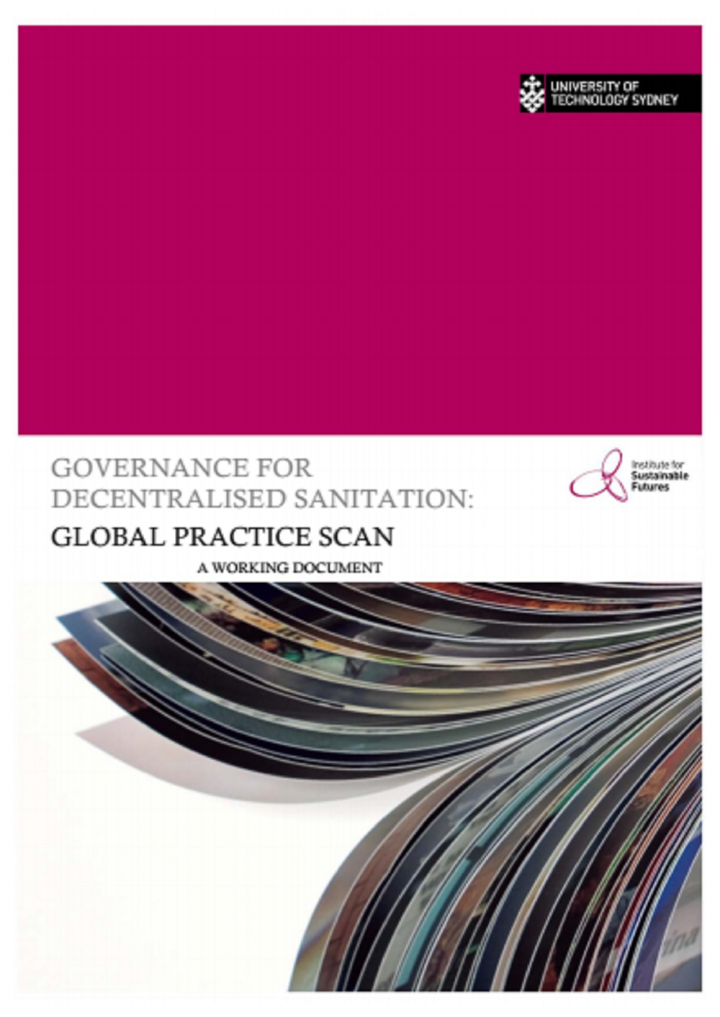Governance for decentralised sanitation: Global Practice Scan - A working document
Ross, K. et al. (2014)

Published in: 2014
Pages: 44
Publisher:
Prepared by the Institute for Sustainable Futures, UTS as part of the Australian Development Research Award Scheme (ADRAS)
Author:
Ross, K. et al.
Uploaded by:
SuSanA Admin
Partner profile:
Institute for Sustainable Futures - University of Technology Sydney
3684 Views
57 Downloads
Location of library entry
Content - Summary
A collaborative consortium, led by the Institute for Sustainable Futures (ISF) at University of Technology Sydney (UTS), is delivering a 3-year project on effective governance for decentralised sanitation. Co-investigators include Bremen Overseas Research and Development Association (BORDA Germany), International Water Association (IWA), and the UK Overseas Development Institute (ODI) as well as local research partners and well-respected experts in the field. Many local participants, including local NGOs, private enterprises and government agencies will also play a significant role in the conduct of the research.
The project
Effluent management in dense, low-income urban areas in Indonesia is challenging. Community scale sanitation systems (serving around 50 – 200 households) offer an affordable way to manage the public health and environmental hazards of untreated wastewater in dense urban locations. However these systems need effective governance to operate long-term. Reviews of these community scale sanitation systems have found that effective governance is difficult to achieve and the service does not always last as long as planned. This research intends to make a significant contribution to a critical gap in sectoral knowledge on how to enable effective governance for decentralised sanitation service delivery. For this project, governance means the financial, stakeholder, organizational, regulatory, and technical support necessary for successful, long-term service delivery.
This Global Practice Scan of relevant practices, experiences and lessons from sanitation and other decentralised sectors, is the first project deliverable, conducted to inform and inspire the research team and collaborators. We used a governance framework that is new for the sanitation sector as our lens for the scan, separating day-to-day operational responsibilities from the institutional arrangements that help or hinder successful operation. Four key governance domains emerged: sustaining demand, effective management, sustainable financing, and functioning technology.
Bibliographic information
Ross, K. et al. (2014). Governance for decentralised sanitation: Global Practice Scan - A working document. Prepared by the Institute for Sustainable Futures, UTS as part of the Australian Development Research Award Scheme (ADRAS)
Filter tags
East Asia & Pacific English Practitioners















